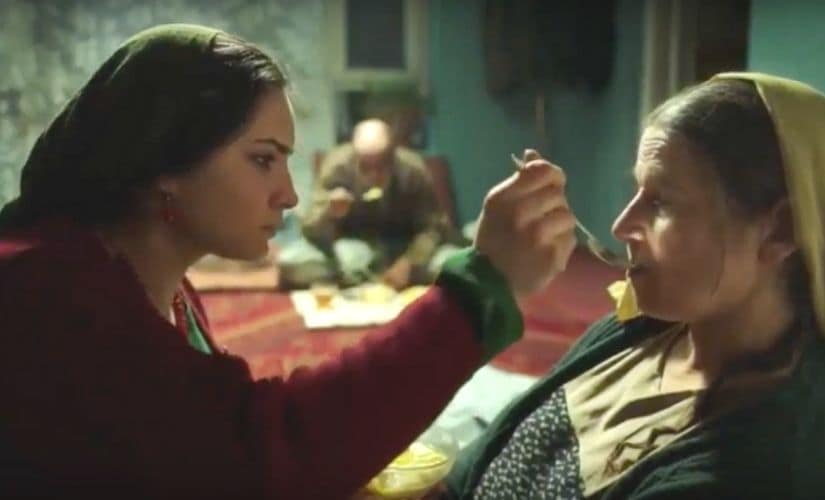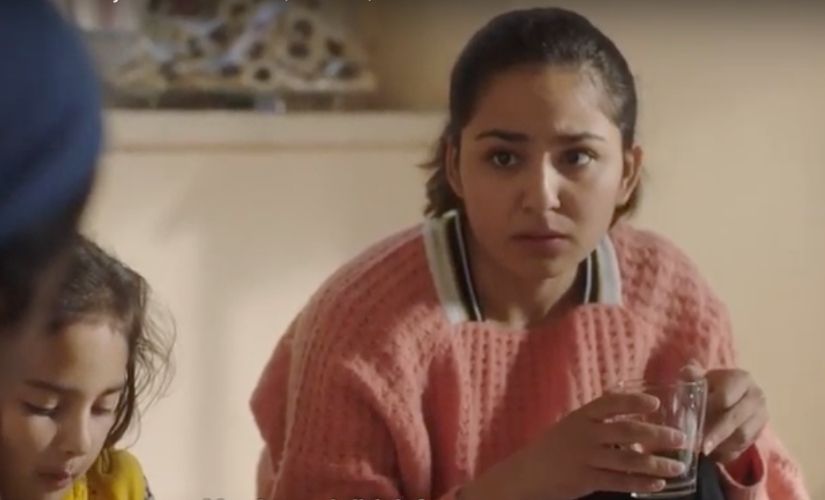Sahraa Karimi’s Hava, Maryam, Ayesha, which was recently screened at the 25th Kolkata International Film Festival, tells the stories of the three title characters, held together by their common plight of being pregnant in modern-day Kabul. Despite the varying conditions under which each of them has conceived, the film plaintively underlines the universal status of women as second-class citizens, especially in war-torn parts of the world where privilege barely cuts it for anyone besides a certain class of men.
An image of seemingly three Afghan women in skirts, walking down the streets of Kabul in 1972, set next to a picture of scores of them, all clad in identical blue burqas covering every inch of their beings, with a timestamp that reads ‘Kabul, 2013’, has been doing the rounds on the internet for quite some time now. Going beyond its authenticity, the photograph poignantly captures how a society and culture were decimated by religious extremists, with women shouldering the greater part of its fall. Cut to 2019, and the country’s national film agency — the Afghan Film Organisation — once quashed like every other such institution in Afghanistan, is now being resurrected by a female filmmaker named Sahraa Karimi, who’s also reportedly the first woman in her country to have received a PhD in cinema.
![HavaMaryamAyeshaPoster825]()
These nuggets of information are key to establishing the premise against which Karimi’s Hava, Maryam, Ayesha — recently screened at the 25th Kolkata International Film Festival — will be dissected for its merits and flaws. The film is almost symptomatic of the politics prevailing in Afghanistan, that’s still stumbling under the yoke of an insurgent Taliban. The stories of the three title characters, Hava, Maryam, and Ayesha, are held together by their common plight of being pregnant in modern-day Kabul. Despite the varying conditions under which each of them has conceived, the film plaintively underlines the universal status of women as second-class citizens, especially in war-torn parts of the world where privilege barely cuts it for anyone besides a certain class of men. Hava, played by Arezoo Ariapoor, is heavily pregnant in the first track of the film. And yet, she draws little to no sympathy from her husband or father-in-law, who seem oblivious to her condition as she toils around the house, climbing up rickety ladders and ducking mousetraps. The misogyny here is brash, almost jarring, bereft of nuances that may have perhaps added some lyricism to the screenplay. It’s as good as a documentary, but we aren’t complaining. In a world of unforgiving realities, sugarcoated fiction can only come across as disservice to its people. [caption id=“attachment_7778491” align=“alignnone” width=“825”]
 Arezoo Ariapoor as Hava in Hava, Maryam, Ayesha. YouTube screenshot.[/caption] Ariapoor brings a heartbreaking tenderness to her performance as Hava. Your soul can’t anything but bleed for her, as she struggles to get back up on her feet after falling on the cold concrete courtyard in one scene. And yet, there’s a steely resolve in her spirit that refuses to settle for anything less than what she deserves. The arid, colourless landscape looks intimidating, with women seeming visibly awkward, almost out-of-place in an all-male world. In this real-world dystopia, a woman’s existence is an act of rebellion in itself, and the screenplay upholds this pathos a little too effectively, to the point of being overwhelmingly disorienting. However, it is precisely at this point that the film begins to falter, as it transitions into Maryam’s track through Hava’s television screen. A newsreader by profession, Fereshta Afshar’s Maryam seems to inhabit a world that barely resembles her predecessor’s. Men cower in her presence, as she struts around calling the shots in a rundown TV station, before making her way back home to a mysterious phone call over countless cigarettes and glasses of whiskey. The following scenes reveal how a once-married Maryam, now pregnant with the child of her philandering ex-husband, struggles to reclaim her life. While on the one side lies her hard-earned ‘western’ education, — similar to the one Karimi has been exposed to — on the other stands the reality of the world she wishes to uplift and simultaneously escape. It’s a veritable Catch 22 for Maryam. [caption id=“attachment_7778501” align=“alignnone” width=“825”]
 Fereshta Afshar as Maryam in Hava, Maryam, Ayesha. YouTube screenshot.[/caption] The premise is promising, but its execution leaves much to be desired. Maryam’s track, — or the bridge connecting Hava and Ayesha’s stories — is the only one that deviates from the film’s documentary-like tenor. The palette and hues are darker, warmer, often strangely misty, lending the scenes a nightmarish quality. There’s an acute sense of claustrophobia, as Maryam paces from one room to the next, donning her white wedding gown in a nod to Miss Havisham, roving around like a spectre. While it all sounds delicious on paper, Karimi’s screenplay fails to deliver dialogues (in this case, the audience gets to hear only Maryam’s side of a telephonic conversation that she has with her ex-husband) that don’t sound straight out of an amateur middle-school play. Afshar evidently struggles to emote while rattling off her story in the most prosaic words possible. The director obviously strives to find her footing in a non-reportage mode of storytelling, making the second track look oddly out of place in the film. It sits uncomfortably between Hava and Ayesha’s episodes, followed by a jerky transition into the latter’s track. [caption id=“attachment_7778511” align=“alignnone” width=“825”]
 Hasiba Ebrahimi as Ayesha in Hava, Maryam, Ayesha. YouTube screenshot.[/caption] Ayesha (played by Hasiba Ebrahimi) is the youngest of the three women, and incidentally Hava’s neighbour. Her mother, the anxious widow Belqeis (played by Sabera Sadat), has arranged for her teenage daughter to get married off to her cousin, oblivious of her affair and subsequent pregnancy. With Ayesha’s story, the film attains its cinematic crescendo, as Karimi slips back into her familiar territory of cinéma vérité. Ebrahimi, who happens to be the only one among the leads with some prior experience in front of the camera, holds her own as the desperate, yet determined young girl, aspiring to transcend her circumstances.
But what stands out through the course of the film — and might I suggest, almost inadvertently — is a palpable discomfort in the way women in this part of the world communicate with each other, notwithstanding their relationships. Being a woman, it’s rather challenging to watch fellow women in 2019 grapple for a vocabulary that does justice to their pain, collectively and individually. And it is precisely at this moment that silence becomes the language of the disempowered. Fortunately, Karimi employs this trope powerfully in the closing scene, where Hava, Maryam, and Ayesha, completely unaware of each other’s lives, are seen sitting close together, waiting their turn at the physician’s clinic. Sahraa Karimi’s film has travelled to several festivals ever since its release, garnering immense support from the global film community, with the likes of Angelina Jolie championing it. Going beyond the mundane technical double Dutch, one is often humbly reminded of what cinema and the arts really stand for — stories and the people inhabiting them. And undeniably, Karimi manages to achieve just that with this film.


)
)
)
)
)
)
)
)
)



